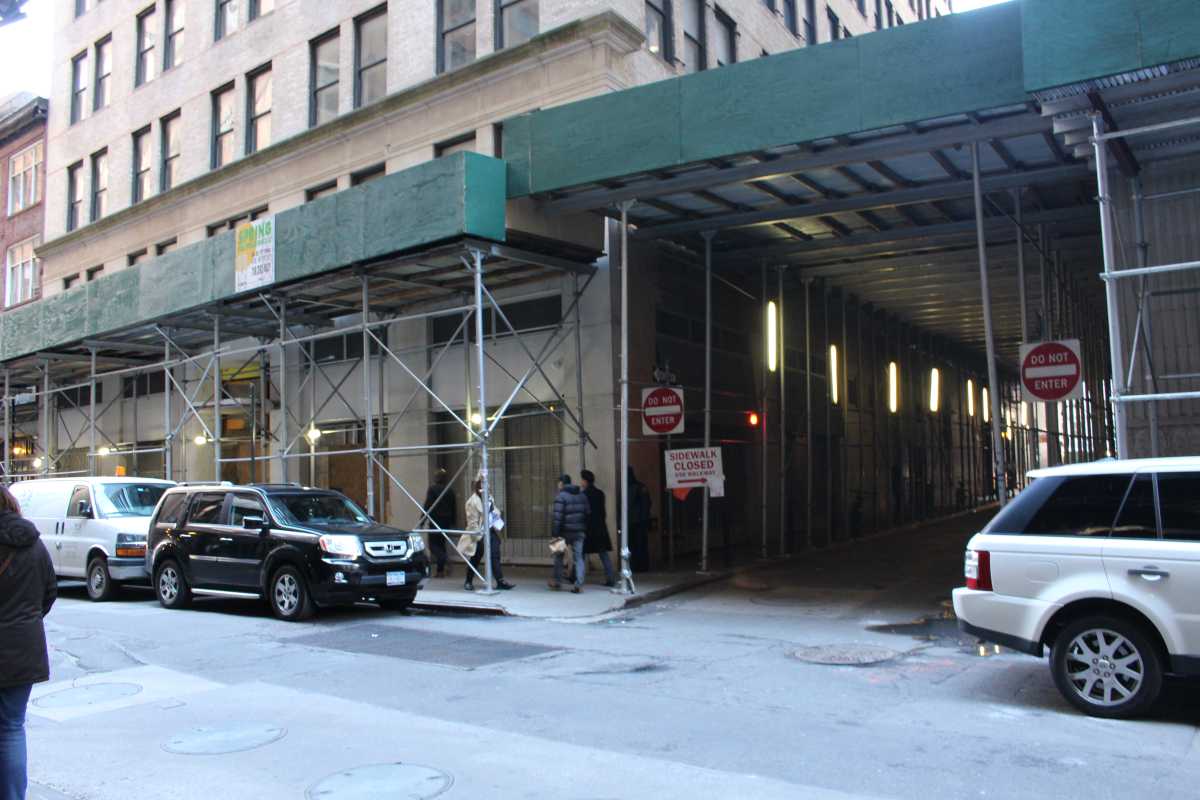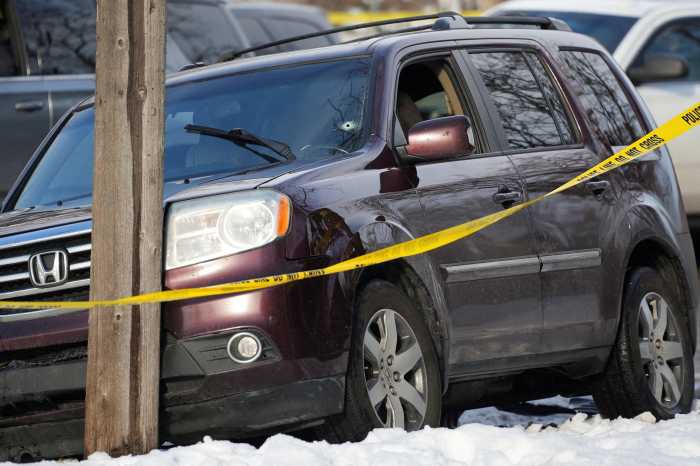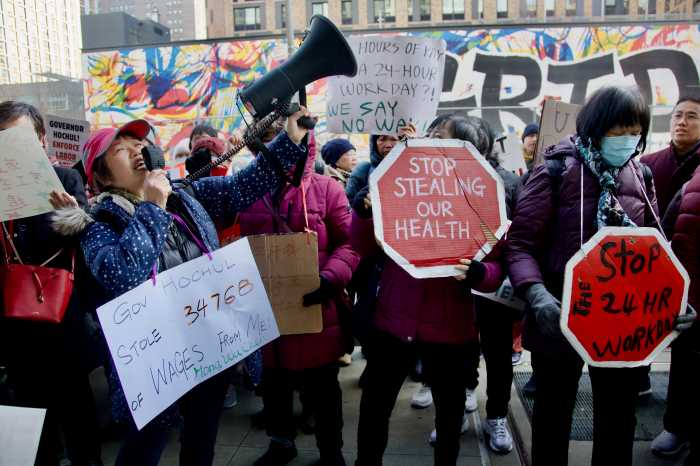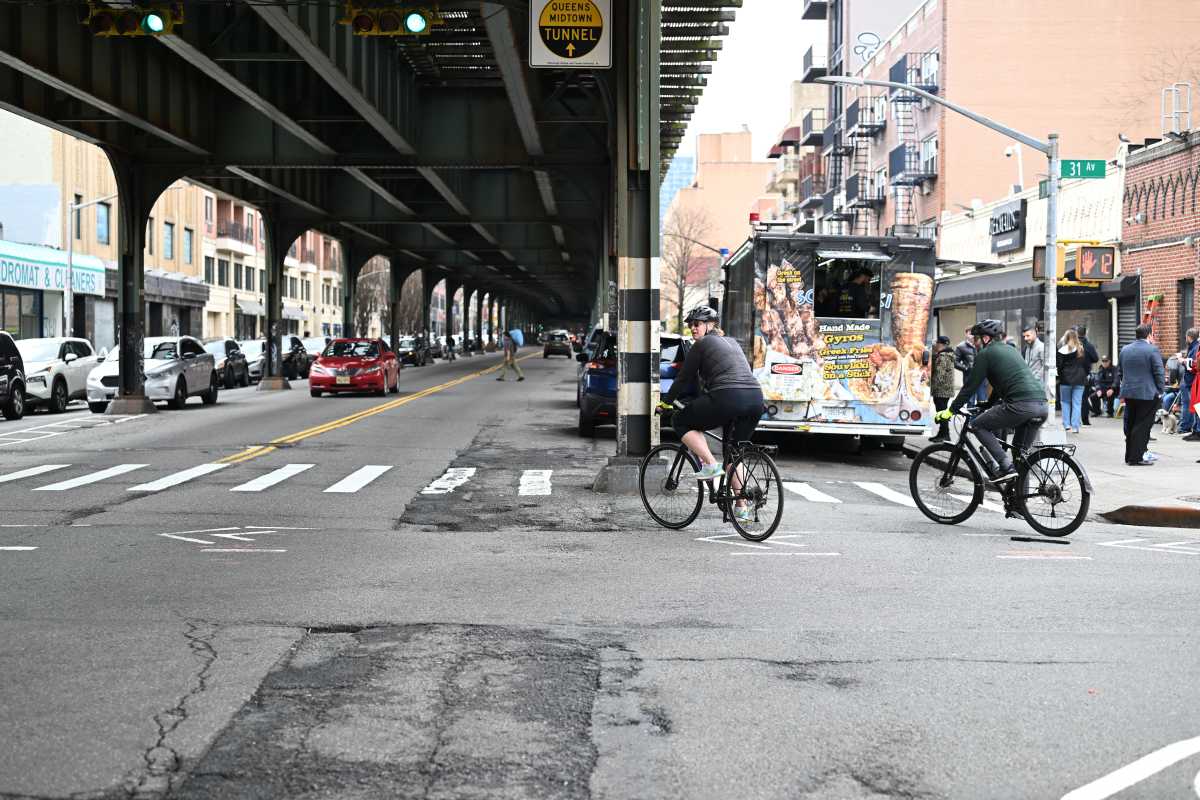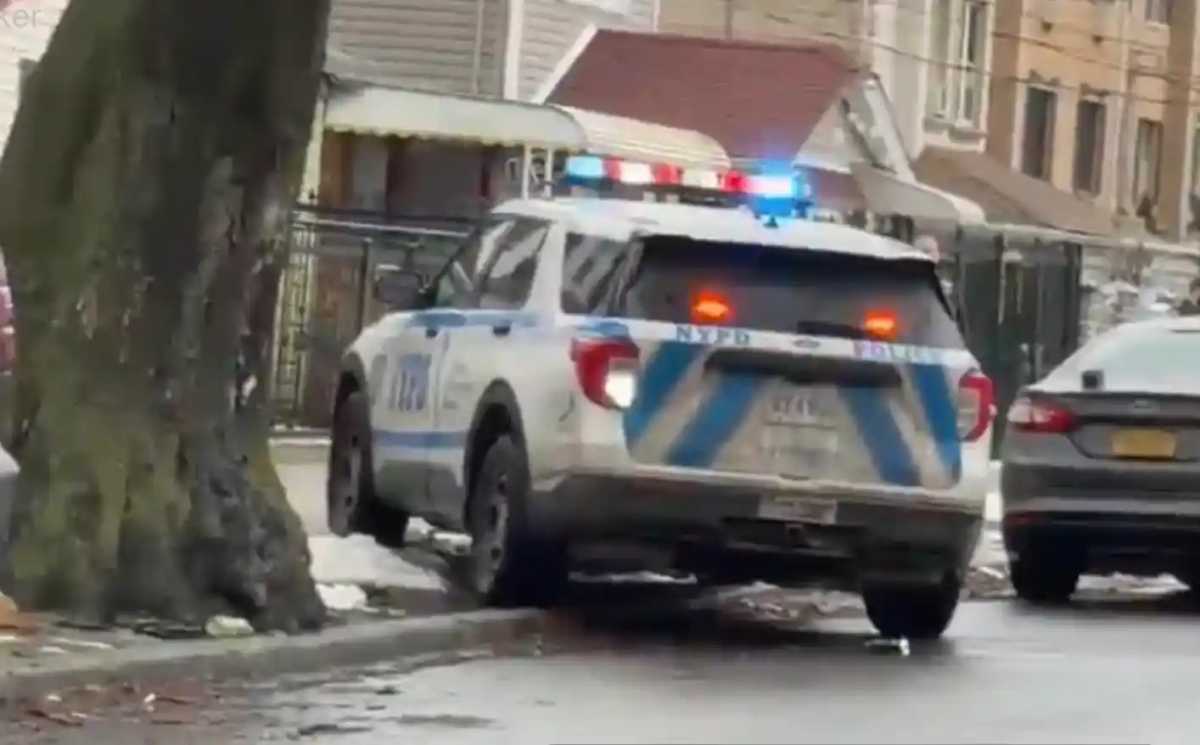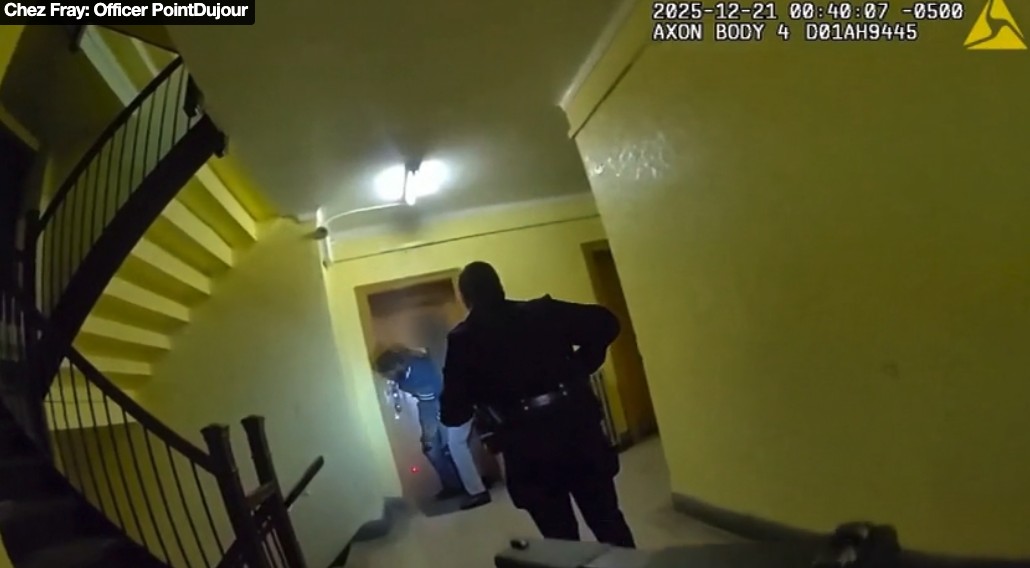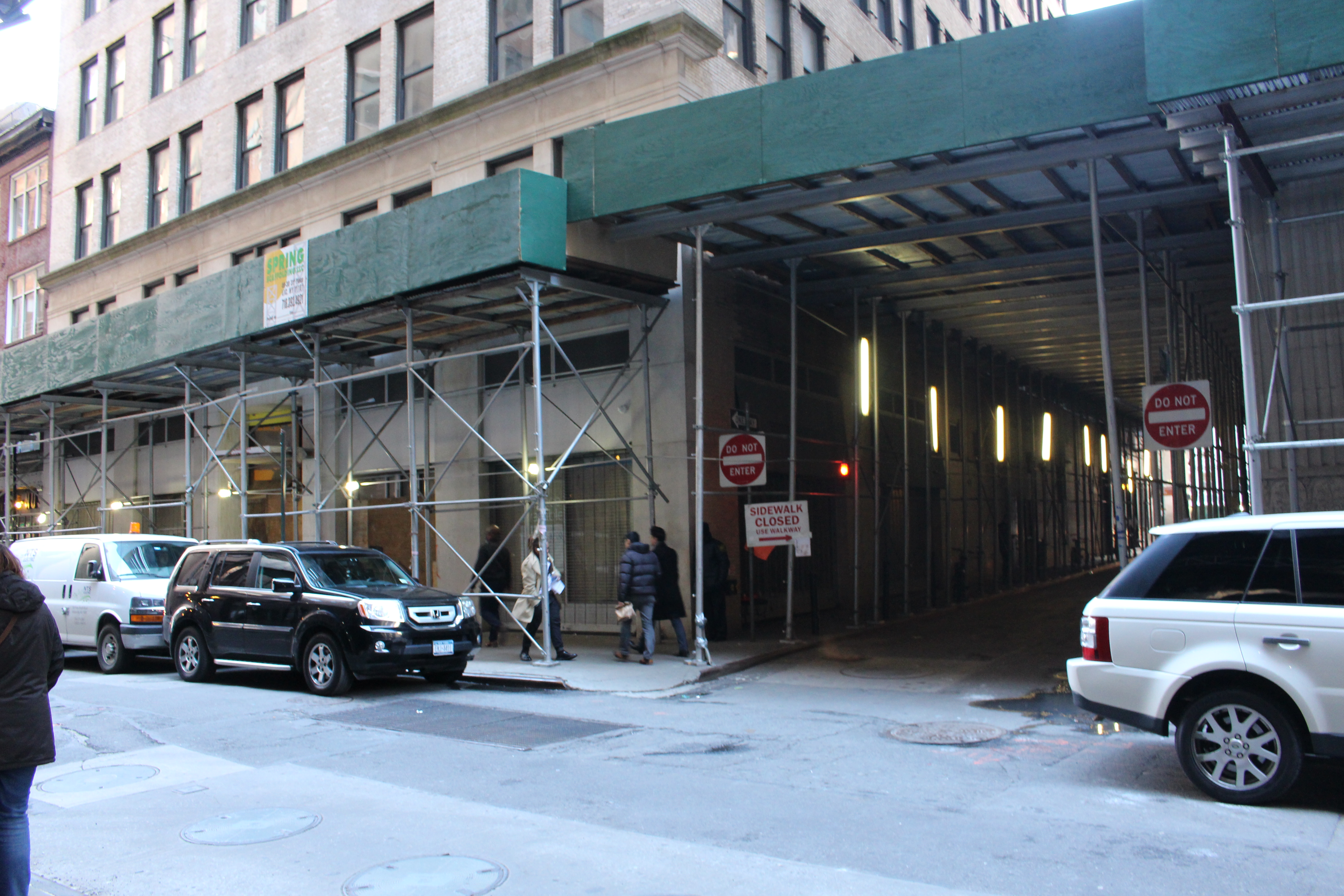
The long-standing scaffolding that wraps around the corner from 45 John Street onto Dutch St., has been up for nine years and created a shadowy haven for indigent addicts, neighbors say.
BY COLIN MIXSON
The plague of pointless scaffolding encrusting Downtown sidewalks for years on end may finally have a cure.
Property owners would have six months to shore up their aging buildings and then take down sidewalk sheds, or else face “heavy penalties” under a new bill introduced by Councilmember Ben Kallos.
Area residents living under the shadow of the sidewalk sheds that have loomed over Downtown for years were overjoyed upon learning that the Upper East Side legislator is attempting to tackle the root of so many of Downtown’s quality-of-life issues, according to the president of the Financial District Neighborhood Association
“I think this is a great starting point, and it’s laudable that someone is doing this,” said Patrick Kennell.
The bill gives landlords three months to complete construction that requires scaffolding or sidewalk sheds for the job, along with an option to apply for an additional three-month extension. After that period expires, however, the city would be entitled to step in to complete any remaining work and take down the scaffolding, before kicking the bill back to the property owners for any costs incurred by the city — likely in the form of liens or by garnishing landlords’ rent earnings, according to Kallos spokesman Josh Jamieson.
The legislation would also give the city the right to jump in and complete the job if seven days go by without any work on the project, although in most cases the issuance of a fine would be a more likely penalty, Jamieson explained.
“The fines go into effect first, and the city reserves the right to go in and fix what it has to fix,” he said. “But after seven days the city can step in, do the work, take the shed down and bill the landlord.”
Kallos’s bill has been widely applauded by locals who have lived in the shadow of Downtown’s ubiquitous sidewalk sheds, which have been known to endure for years without purpose, and often serve as a refuge for indigent squatters, according to one Fidi resident, who lives beside a notorious 9-year-old sidewalk shed at 45 John St.
“If work isn’t being done, the scaffolding should come down,” said Vicki Raikes. “It is well past time to put the financial screws on these construction companies, which otherwise pay no mind to what effect the endless ugly scaffolding has on the businesses they shield from view.”
Some have questioned the strict seven-day limit Kallos’s bill would impose, which some regard as an infeasible and overly harsh imposition, according to Greenwich St. resident Pat Moore, who heads the Community Board 1 Quality of Life Committee.
“I think seven days is not reasonable, I think it should be in terms of months,” she said.
Other critics have dismissed the measure as unenforceable without a dramatic increase in inspectors and repair workers at the Department of Buildings, but the bill’s boosters counter that the two problems actually cancel each other out.
Since it would be virtually impossible for the city to complete work for all property owners whose workers dallied for a week, the city would likely only step in against the worst offenders, Jamieson said. But the proposed law would at least give the city some enforcement option, when now it has none.
“The spirit of the law is to get the most egregious landlords, who have scaffolds up for years without any work, and which community members have complained about,” he said.
The bill will likely need some work before it’s ready for a Council vote, but its aggressive language should at the very least shine a spotlight on an issue that’s been left to linger — like the scaffolds — for far too long, Kennell said.
“This is aggressive and that’s not a bad thing,” Kennell said. “I don’t expect it to be passed in this form, but it’s a positive step in the right direction, and it’s the kind of thing that will spur a debate about how to handle this.”



